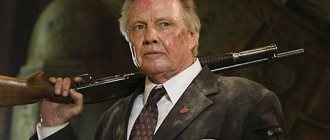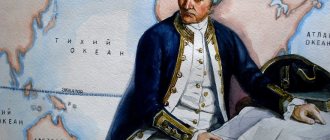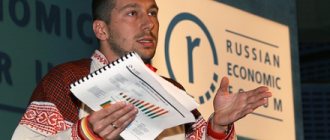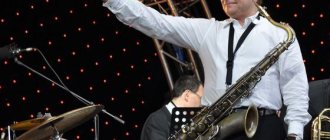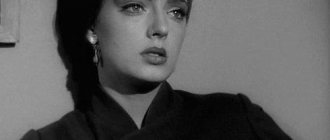Karl Heinrich Marx (German: Karl Heinrich Marx, 1818-1883) is an outstanding German scientist, journalist, and public figure. The author of several scientific theories that became truly revolutionary for his time - the theory of surplus value, the principles of materialism, the theory of class struggle. He laid the foundations of the modern socialist and communist movement, based on the platform of the ideology of Marxism he created. He wrote a number of fundamental works - “Capital”, “Manifesto of the Communist Party”, in which he scientifically revealed the shortcomings of the capitalist system. He worked closely with his friend and like-minded person F. Engels, with whom they developed a formational approach to understanding history.
Childhood and youth
Karl Marx was born on May 5, 1818 in the German city of Trier into a Jewish family. His father was a lawyer, and his semi-literate mother devoted most of her life to housekeeping. The family had very good incomes and therefore never gravitated towards revolutionary activities. It is known that the parents of young Karl and his sister Sofia were happy with each other and helped provide their offspring with a carefree youth. He was assigned to study at the Trier gymnasium, from which he graduated in 1835. Marx did not really like to talk about this period of his life and never mentioned the names of his school friends.
The future scientist received his higher education within the walls of Bonn and then Berlin University. He graduated from the latter in 1841, defending a diploma on the philosophical views of Epicurus. At universities he studied jurisprudence, but he was more attracted to history and philosophy. During his student years, Karl joined the ranks of the then fashionable Hegelians, who defended revolutionary and atheistic views, which they found in the philosophy of G. Hegel. Here he meets B. Bauer and the philosopher L. Feuerbach.
Education
In October 1835, Marx began studying at the University of Bonn. It had a vibrant and rebellious culture, and Marx took an enthusiastic part in student life. In two terms he was imprisoned for drunkenness and disorderly conduct, incurred debts and participated in a duel. At the end of the year, Marx's father insisted that he enter the more serious University of Berlin.
In Berlin he studied law and philosophy and became acquainted with the philosophy of G.W.F. Hegel, who was a professor in Berlin until his death in 1831. Initially, Marx was not in love with Hegel, but he soon became involved with the Young Hegelians, a radical group of students, including Bruno Bauer and Ludwig Feuerbach, who criticized the political and religious institutions of the day.
In 1836, as he became politically zealous, Marx secretly became engaged to Jenny von Westphalen, a sought-after woman from a respected family in Trier who was four years his senior. This, along with his growing radicalism, caused his father concern. In a series of letters, Marx's father expressed concern about what he viewed as his son's ##201201; s demons, & # x201D; and warned him for not taking the responsibilities of marriage seriously enough, especially when his future wife was from a higher class.
Marx did not calm down. He received his doctorate from the University of Jena in 1841, but his radical politics prevented him from accepting a teaching position. He began working as a journalist, and in 1842 he became editor of the Rheinische Zeitung, a liberal newspaper in Cologne. A year later, on April 18, the government ordered the newspaper banned. Marks resigned on March 18. Three months later, in June, he finally married Jenny von Westphalen, and in October they moved to Paris.
First independent steps
After receiving his diploma, Marx went to Bonn, expecting to receive a professorship. However, these plans were not destined to come true, and one of the main reasons was the reactionary policy of the government. For political reasons, his like-minded people were subject to restrictions: Feuerbach lost his chair, and Bauer was banned from lecturing in Bonn. At this time, with the support of the radical bourgeoisie and left-wing Hegelians, the Rhenish Newspaper was founded. Marx was invited there along with Bauer, and soon Karl became its editor-in-chief, which forced him to move to Cologne. During the leadership of the newspaper by Marx, it increasingly “left”, for which it was subjected to severe censorship, and then in 1843 it was completely closed.
Moving to Paris
After losing the opportunity to do what he loved in his homeland, Marx moved to Paris, where, together with the left Hegelian A. Ruge, he began publishing the radical magazine “German-French Yearbook”. True, the idea did not receive much development and only one issue of the publication was published. But Marx wrote a series of articles for its publication in which he unambiguously demonstrated his radical sentiments. In particular, the author called for criticism of the existing order, appealing for support to the masses of the proletariat.
In 1844, F. Engels came to the French capital for several days, with whom Marx met. They quickly found a common language and took an active part in the revolutionary activities of Paris. However, it was not possible to develop his work for a long time, since, at the insistence of the Prussian side, Karl was expelled from France.
Belgian period
In 1845 he was forced to move to Brussels. Revolutionary activity was continued on a new scale. In 1847, Marx and Engels joined the ranks of the secret radical international organization “Communist League”, which professed revolutionary views. They took an active part in the London congress of 1847, and on its instructions they wrote one of the outstanding revolutionary works, the Manifesto of the Communist Party.
In this work, the authors substantiated the goals and objectives of the nascent communist movement. Marx presented the historical path of mankind as a struggle of classes and proclaimed the inevitable death of capitalism at the hands of the world proletariat. The work gained enormous popularity. In Germany, England and the USA, the Manifesto went through 12 editions. A decade and a half later, thanks to the efforts of Marx’s friend, the anarchist M. Bakunin, the work will be translated into Russian. Subsequently, Marx founded the German Workers' Society, which, being legal, was engaged in the propaganda of communist ideas. “To be radical is to understand a thing at its root,” Marx argued.
In 1848, when a revolutionary fire was raging throughout Europe, Marx was forced to leave Brussels and come to Paris again. But he does not stay here for long and returns to Cologne, where he becomes editor-in-chief of the Neue Rheinskaya Gazeta, while at the same time heading the Cologne Workers' Union.
What did Karl Marx achieve?
The main achievements of Karl Marx include the following:
- He put forward the theory of alienation.
- He created the famous Marxist theory of historical materialism.
- He developed the concept of class struggle.
- He co-authored the Communist Manifesto.
- He wrote the pioneering work Capital.
London period
The defeat of the revolutionaries and the triumph of communist forces contributed to the organization of persecution of the leaders of workers' organizations. This forced Marx to leave Germany again and transit through Paris to London, where, starting in 1849, he would live for the rest of his life. His correspondence with Engels opens sad pages of the scientist’s biography. It is obvious that he and his family were in serious financial need and enjoyed the financial support of a wealthier friend, Friedrich. Therefore, we can confidently say that Engels contributed to the birth of Marx’s scientific theories not only ideologically, but also materially.
At this time, he did a great job of creating a materialist theory, actively studying political economy. New ideas were reflected in two of Marx's most famous works: the first volume of Capital and Contribution to the Critique of Political Economy. In Capital, the author laid the foundations of economic teaching, brilliantly expounding the theory of surplus value and creating a scientific basis for the liberation struggle of the proletariat. “Talking about natural justice is nonsense,” the founder of scientific communism explained his position.
Emigration
After the Prussian government attempted to bribe Marx by offering to join the Prussian civil service, under threat of arrest, the young family moved to Paris at the end of October 1843, where Marx became friends with Heinrich Heine and Friedrich Engels. He was connected with the latter until the end of his life by bonds of friendship and joint work. It was Engels who drew Marx's attention to the situation of the working class.
So Karl Marx was expelled from Germany on May 16, 1849 and with his family first went to Paris, but after the demonstration on June 13, 1849 he was expelled from there too. Marx and his family eventually moved to London, where he lived until his death and wrote his major economic works, including Capital.
The conditions of emigrant life were extremely difficult; Marx and his family lived solely on the constant financial support of Engels, small inheritances from relatives and odd earnings from writing articles for newspapers. In one of his letters asking for financial help, Marx writes: “Jenny is sick. My daughter Jenny is sick. I have no money for a doctor or medicine. For 8-10 days the family ate only bread and potatoes. The diet is not very suitable for the local climate. We owe rent on the apartment. The bills of the baker, the greengrocer, the milkman, the tea merchant, the butcher are all unpaid.”
At the origins of the First International
At the height of the labor movement, Marx, riding a wave of protest sentiment, came up with the idea of creating an International Workers' Association. In fact, this meant the separation of the proletariat from the tutelage of the bourgeoisie and the beginning of the formation of an independent political path. The First International was created in September 1864 in London at a joint meeting of English and French workers, although representatives from other countries were present at the event. Marx prepared two founding documents: the Charter and the Founding Manifesto, and was also elected to the General Council of the organization.
From the very beginning, the First International began organizing joint actions of workers, stimulated the strike movement, and contributed to the creation of press organs. Marx’s great merit can be called the development of a common tactic of struggle of the proletariat and the unification of a large number of non-Marxist movements into a united front. At the same time, the great scientist never tired of debunking the limitations of their views and tactical aspirations. The activities of the International Workers' Association were threatened in 1871, when the Paris Commune fell under the onslaught of revolutionary forces, and the Bakuninites managed to split the organization from within. Nevertheless, it formally ceased to exist only in 1876.
The dissolution of the First International and the relocation of many of its leaders overseas became the reasons for Marx’s retreat from active social activities. From then until the last days of his life, he focused on scientific work, only occasionally returning to the labor movement.
last years of life
In 1875, Marx wrote the work “Critique of the Gotha Program,” which became one of the key works of Marxism and was not originally intended for publication. It was published only 8 years after the author’s death through the mediation of Engels. In his work, Marx harshly criticized the program of the German workers' party, which outlined a moderate path to building socialism. As a constructive alternative to the transition to communism, he proposed the idea of the dictatorship of the proletariat, proletarian internationalism and the need to create a real party of the working class. At the same time, on the path to building communism, Marx identified two phases, at the highest of which the following principle will be established: “To each according to his abilities, to each according to his needs.”
In addition, Marx put a lot of effort into creating workers' parties in many countries around the world, and also continued to develop revolutionary theory. While working on the creation of volumes 2 and 3 of Capital, he came to the conclusion about the communist nature of primitive society. Subsequently, these conclusions will be used by Engels when writing the book “The Origin of the Family, Private Property and the State.”
Personal life
The wife of the great scientist was his childhood friend Jenny von Westphalen, whom he married in 1843. She had Prussian roots, and her family belonged to the reactionary layer of landowners. It is not surprising that Jenny's brother served as Minister of the Interior in one of the most reactionary Prussian governments. Karl Marx was the father of seven children, but only three daughters lived to adulthood. The youngest of them, Eleanor, became a follower of her father and actively participated in the international labor movement.
In 1881, the scientist suffered a terrible blow - the death of his beloved wife. Then the eldest daughter, Jenny, became seriously ill and died. All this seriously undermined Marx's health. He died in London on March 14, 1883 from complications associated with bronchitis.
Karl Heinrich Marx
- home
- Famous personalities
- Famous philosophers
- Karl Heinrich Marx
KARL MARX
(1818–1883)
German thinker and public figure, founder of Marxism. Marx developed the principles of a materialist understanding of history (historical materialism), the theory of surplus value, and studied the development of capitalism. The ideas of Marxism had a significant influence on social thought and the history of society at the end of the 19th and 20th centuries. Marx's main work is Capital (vol. 1, 1867); Volumes 2 and 3 were prepared for publication by F. Engels (1885 and 1894). Main works: “Economic and Philosophical Manuscripts” (1844), “Towards a Critique of Hegel’s Philosophy of Law” (1844), “The Holy Family” (1845), “German Ideology” (1845–1846), both together with F. Engels; “The Poverty of Philosophy” (1847), “Critique of the Gotha Program” (1875).
Marx spent his childhood in Trier, a city in the Rhineland. Economically and politically it was one of the most developed parts of Germany.
The boy's father, Heinrich Marx, a talented and extraordinary personality, treated his son with extraordinary tenderness and cared about his spiritual development. The whole atmosphere in the house was conducive to making the child's soul yearn for knowledge, goodness, and justice.
Karl was baptized at the age of six in the Evangelical Church of Trier in Prussia at the request of his father, who thus abandoned the family faith. Later, Charles himself rejected religion, famously declaring that it was “the opium of the people.”
When Karl turned twelve, he entered the local gymnasium. Studying was easy - especially when studying those disciplines that required creative independence and a vivid imagination. Marx successfully mastered Latin and Greek and easily read ancient texts. Apparently, it was precisely his love for ancient languages that instilled in him that logical and at the same time lively, full of irony style that distinguished his works. Marx also excelled in mathematics.
After graduating from high school, Marx entered the University of Bonn. He did not study there for long - only a year: the search for his path in life led Marx to the Faculty of Law at the University of Berlin. The spirit of the great Hegel still “hovered” here. And this, undoubtedly, prompted the impressionable Marx, who thirsted for comprehensive knowledge, along with studies in law, history, art theory, and foreign languages, to take up a deep study of philosophy. He studies many works, including the works of Hegel and most of his students.
Marx became close to the Young Hegelians (representatives of one of the movements of the famous philosopher’s followers).
Beginning in 1839, philosophy became the main work of life for Marx. And soon the intense mental work bore fruit. In 1841, his dissertation “The difference between the natural philosophy of Democritus and the natural philosophy of Epicurus” was awarded a Ph.D. Despite the fact that Marx still remained a supporter of the teachings of Hegel in his work, it became a noticeable milestone in his spiritual development: he proclaimed the principle of the active relationship of philosophy to reality and declared his atheistic views.
The beginning of Marx's political activity dates back to this time. In October 1842, he became one of the employees and editors of the Rhine Newspaper, whose articles determine its direction. He called for a revolutionary struggle for democratic freedoms. Of course, such calls seriously worried the Prussian government. Censorship “erased out” every issue that was published. Marx had a hard time enduring such treachery by the authorities. “It is disgusting to be under the yoke - even in the name of freedom, it is disgusting to act with pin pricks instead of fighting with clubs,” he wrote. At the beginning of 1843, the government achieved its goal and closed the Rheinische Gazeta.
In June of the same year, a happy event occurred in Marx’s life: he married Jenny von Westphalen. Karl fell in love with Jenny, the baron's daughter, when he was still sixteen. Jenny was smart, noble and a little vain. From among her many admirers, she chose Marx, whom she affectionately called “the little black savage.” Both families were against this marriage. The young couple spent their honeymoon in Switzerland. Their first child was born in Paris.
The move to Paris was caused largely by the fact that the editor of a newspaper too “inconvenient” for the government was offered an offer to move to the Prussian civil service; Marx perceived this as a poorly disguised bribe and indignantly rejected it.
Marx's first visit to Paris is the most memorable and significant. It was in 1843–1844 that his transition to revolutionary communist positions was completed, and it was then that his friendship with Friedrich Engels, the son of a wealthy manufacturer, began.
In February 1844, the only issue of the German-French Yearbook was published. Marx first expressed the idea that the communist transformation of society is the only real way to overcome the limitations of the bourgeois revolution and liberate man from social, national and other shackles.
In Paris, Marx took an active part in the activities of the German emigration, collaborating in the newspaper “Forward!” But in January 1845, the French authorities, to please the Prussian government, expelled the editors and staff of the newspaper from the country. Marx and his family move to Brussels.
Here he had to experience a lot of hardships and hardships - in fact, he was left without a livelihood. The only source of meager income - fees for articles on current politics - turned out to be closed: the Brussels police, as a sign of solidarity with the Prussian authorities, forbade Marx to publish anything in the press. His faithful friend Friedrich Engels came to the rescue. He organized a fundraiser among supporters and like-minded people of Marx in the Rhineland, and sent part of the royalties for his book “The Condition of the Working Class in England.”
The support of his comrades inspires Marx, and he throws himself into his work. Together with Engels, in about six months he completed the manuscript of “The German Ideology”, made rough sketches of the “Theses on Feuerbach”, and created other works in which he formulated the starting points of the new worldview.
All previous experience of class struggle and theoretical analysis led Marx and Engels to the conclusion that only a revolutionary workers' party can raise, organize and lead the working class to destroy the old world. The comrades are directing all their efforts to creating a revolutionary party. At the beginning of 1846, Marx organized the Brussels Communist Correspondence Committee, which maintained contacts with committees and groups in Great Britain, France, and Germany. In June 1847, the first congress of the Communist League took place in London with the participation of Engels. The League of Communists, reorganized by Marx and Engels, laid the foundations for the entire subsequent history of the revolutionary labor movement. At the second congress of the union in London they were instructed to write its program, and they wrote it. In February 1848, the famous “Manifesto of the Communist Party” was published.
The revolution of 1848–1849 was the first historical test of Marxism.
The news of the overthrow of the Parisian “king of bankers” Louis Philippe caused a storm of delight in Brussels. Jubilant people clogged the streets. The authorities immediately pulled troops to the city. Marx, who had recently received an inheritance, gave several thousand francs to arm the workers. The Belgian police, frightened by Marx's active revolutionary activities, hastened to expel him from the country. He again found himself in France, but with all his thoughts he strove to return to his homeland. After the March barricade battles on the streets of Berlin, when the reaction under the leadership of the Prussian King Wilhelm weakened its position, German emigrants in Paris were able to return to Germany. In April 1848, Karl Marx crossed the border and again saw his native landscapes.
In Cologne, he began publishing the Neue Rheinische Gazeta. Marx and Engels clearly defined the program of the press, the liquidation of the Prussian and Austrian states and the creation of a united republican Germany.
Marx was called the soul of the editorial board. He determined the strategic line of the newspaper, distributed tasks among employees, conducted extensive correspondence, edited, and managed finances. When the publication found itself in dire financial straits, he donated a significant amount of money from his father’s inheritance.
Marx became one of the leaders of the Cologne Democratic Society and was a member of the Rhine District Committee of Democrats. In June, Marx again left for the French capital, but even here the reaction continued to haunt him. I had to move to the UK. London became the cradle of many theoretical developments for Marx.
Marx developed classical conclusions in his main work, Capital. They were born as a result of many years of painstaking work. Marx began a detailed study of the political economy of capitalism in the mid-forties, not without reason believing that this particular area of research would allow him to understand the specific laws of capitalism and reveal the “anatomy of civil society.” In a letter to Engels in the winter of 1857, he admitted that he was working “like mad,” all night long. A month later he wrote again: “I abused night work too much...”
In January 1859, work on the economic manuscript was completed. It, in fact, contained a plan for the creation of six books on capital, land ownership, wage labor, the state, foreign trade and the world market.
The author, however, did not have a penny to send the manuscript to the publisher. One of the first biographers of Marx, Franz Mehring, wrote with sad irony about the fact that the accounts did not add up for this classical theorist of monetary circulation. Money has always been Marx's sore spot. He refused to be a “money-making machine,” so his family always lived on what he earned from writing, as well as on the help of relatives Jenny and Engels. Marx's children were taught to tell everyone who came to their house demanding payment of some regular bill or debt - "Mr. Marx is not at home."
As always, Engels comes to the rescue. Thanks to his efforts, the manuscript gets to the publisher and is soon published under the title “On the Critique of Political Economy. First issue” Marx believed that his work was only the first approach to a topic that required further development. Such a continuation was “Capital”, in which he implemented the plan for creating one of the six books outlined in the work “Towards a Critique of Political Economy”.
Under the influence of Feuerbach's ideas, Marx rejected Hegel's concept of the Absolute Spirit and sought to place man and human consciousness at the center of his philosophy. He began to view social relations associated with wage labor, production, trade and money as the defining forces of human history. Social relations that arise at a certain stage of development of society, says Marx, correspond to the stage of development of the material forces of production, and all this together constitutes the economic structure of society. He wrote: “The method of production of material life determines the social, political and spiritual processes of life in general. It is not the consciousness of people that determines their existence, but, on the contrary, their social existence determines their consciousness.”
Marx believes that society in its development reaches a point where the material forces of production come into conflict with existing relations of production, as a result of which they become a brake on the development of society. This gives rise to social revolutions. At the same time, Marx emphasizes that no order will disappear before all productive forces have been developed, and new higher relations of production will never appear before the material conditions of existence have matured in the depths of the old society. By industrial relations he understands the relations that arise between the landowner and the hired worker, the factory owner and the worker, etc. They constitute the economic structure of society and are the basis of the political, moral and spiritual superstructure.
Marx's main conclusion is that every aspect of life is determined by material factors. Just as Hegel believed in the progress of the Spirit towards higher self-consciousness, so Marx believed in the progressive development of human material life and human nature. Marx's attention was directed to material and physical rather than to spiritual reality. He highlights the working class as a force that embodies poverty and extreme self-alienation. According to Marx, the essence of man is precisely to create things, but not within the framework of private property. Therefore, the human condition must be changed through the abolition of private property and the labor system in which man is exploited by man.
All this should lead to the liberation of people from the conditions in which they see everything from the point of view of the market. Marx immediately after the publication of his first economic study began this work. Day after day, for long hours, he sat behind books in the library of the British Museum, taking detailed notes on what he read. But still, the main theoretical understanding of everything took place at home, at the desk of a modestly furnished office.
As was his custom, Marx worked tirelessly. Only sometimes, feeling tired, did he put aside his manuscripts and rest with higher mathematics. And yet, overwork made itself felt - he complained of malaise and pain in the liver. “Believe me,” we read in one of his letters to Jenny Marx, “hardly any book was written under more difficult conditions. “At the end of March 1867, after almost ten years of work, the first volume was ready for printing. Engels, immediately notified of this event, could not contain his joy: “Hurray! I couldn’t resist this exclamation when I finally read in black and white that the first volume was ready.” At the end of the same year, Capital went out of print.
The study focuses on the relationships between capital and labor, the bourgeoisie and the proletariat. Marx sought to show that capitalism carries within itself the seeds of its own destruction. He argued that capitalists create their profits based on the surplus value they appropriate at the expense of workers. Therefore, as capitalism develops, the ratio of labor and capital is constantly changing. This means that the profit share must eventually fall, leading to the undermining of capitalism.
The capitalist’s thirst for surplus value is limitless; it is caused by the entire course of development of capitalist production, because the capitalist, if he does not want to go bankrupt, must repeat the process of producing surplus value again and again.
In the first volume of Capital, Marx quotes a statement from the Quarterly Review that characterizes the irrepressible greed of the bourgeoisie. “Provide 10 percent, and capital agrees to any use; at 20 percent, it becomes animated; at 50 percent, it is positively ready to break its head; at 100 percent, it violates all human laws; at 300 percent, there is no crime that it would not risk , at least on pain of the gallows.”
In a letter to Engels on August 24, 1867, Marx wrote that the best thing in his book was his discovery of the dual nature of the labor of a commodity producer. The duality of labor lies in the fact that it simultaneously acts as concrete labor, creating the use value of a commodity, and as abstract labor, creating the value of a commodity. His discovery of production relations provided the key to revealing all the features of commodity production.
According to Marx, “the capitalist mode of production rests on the fact that the material conditions of production in the form of ownership of capital and ownership of land are in the hands of non-workers, while the masses have only the personal condition of production - labor power.” This method of production is based on the merciless exploitation and appropriation of other people's labor.
Along with his titanic scientific work, K. Marx continued to actively participate in the revolutionary movement. He played a leading role in organizing the International Working Men's Association - the First International, whose founding congress took place in 1864. He headed its governing body - the General Council, prepared the Constituent Manifesto of the International Workers' Association and the Provisional Charter of the Association, where he set out program provisions in which he defined the revolutionary orientation of the International and developed the ideas of proletarian internationalism.
In the last years of his life, Marx, with his usual zeal, was engaged in further improving revolutionary theory, forming proletarian parties in other countries and strengthening international ties between them.
Marx showed deep interest in Russia. His connections with representatives of the revolutionary movement of this country expanded every year. He knew well and highly appreciated Russian democratic literature, and was deeply convinced that Russia could play an important role in the world revolutionary process. In June 1858, Marx wrote that there was another great power, which ten years ago had been extremely energetic in holding back the pressure of the revolution. And now, he noted, flammable material had accumulated under her feet, which, with a strong gust of wind from the West, could suddenly ignite.
The symptoms of the war of the serfs within Russia are so obvious, Marx stated with conviction, that the local authorities themselves have to blame Austria for it in order to explain this extraordinary ferment, allegedly spreading socialist and revolutionary teachings throughout the country with the help of secret emissaries.
During his life, Marx suffered the hardships of emigration more than once. In his own words, he sacrificed his life’s work, the struggle for the triumph of communism, health, happiness and his family. To the question: “What is your idea of happiness?” Marx answered, “Struggle.” Wife and faithful friend Jenny shared with her husband all the sorrows of his restless existence, wanderings, poverty, and furious persecution. Of their seven children, only three daughters survived - Jenny, Laura, Eleanor.
His wife was Marx's closest assistant and adviser, his “good genius.” Despite family concerns, she was his irreplaceable secretary for many years, rewriting his works. Jenny corresponded with figures in the international labor movement. When she died, Engels dropped the phrase “The Moor died too” (relatives and family members respectfully and jokingly called Marx the Moor). Engels knew that Karl and Jenny literally could not live without each other. The greatness of Marx's mind was recognized by many of his contemporaries. Those who had the opportunity to communicate with the outstanding thinker spoke and wrote about the comprehensive nature of Marx’s genius, colossal erudition, and the captivating power of talent. When one of Marx’s contemporaries was asked what impression the leader of the First International made on him, he, on reflection, called him Aristotle.
However, there were other, even more figurative comparisons: “Imagine Rousseau, Voltaire, Holbach, Lessing, Heine and Hegel in one person... And before you will be Dr. Marx,” for example, a young man wrote to his friend in 1841 admirer of Marx's talent Hess.
After the publication of Capital, Marx's friends organized the publication of advertising notices in one of the newspapers, which caused a sharp protest from Marx. “Such things,” he said, “I consider more harmful than useful, and unworthy of a man of science. For example, the publishers of Meyer's Encyclopedic Dictionary have long written to me and asked for my biography. But not only did I not give it, but I also did not answer the letter.”
In the early 1880s, Marx's health deteriorated. In a short time he had to withstand two terrible blows. His wife died in December 1881, and his eldest daughter, Jenny, died in January 1883. This undermined the last of his strength. On March 14, 1883, Marx died.
He was buried on March 17 at Highgate Cemetery in London. Over the grave of his friend, Engels prophetically said: “Both his name and his work will survive the centuries.”
Marxist theory had a great influence on many thinkers of the 19th and 20th centuries. In the 20th century, under the influence of Marxism, a philosophical movement called neo-Marxism (Frankfurt School) arose, which interpreted Marx’s ideas from the perspective of modernity.
Famous philosophersBiography Philosophy
